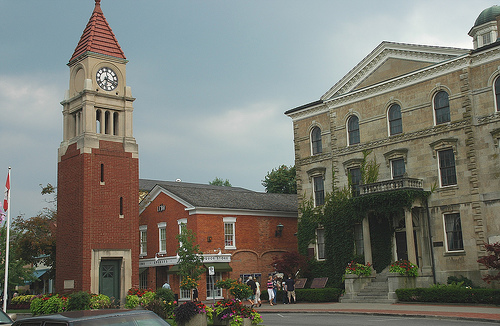The premiers held a press conference this morning where they announced additional drugs to be bulked purchased. We applaud the premiers on their work to bulk purchase drugs, but their refusal to call the federal government to a 2014 Health Accord is puzzling.
With the federal government involved, Canada could have a national pharmacare plan that would save us $10.8 billion a year! Instead, the premiers are staying silent on the role of the federal government and are claiming that they can do just as much with a provincial bulk purchasing plan.
What the premiers are missing is the administrative costs that Canada could save with one plan–$560 million according to Marc Andre Gagnon .
It’s obvious that the premiers don’t want the federal government to tie what’s left of their health care transfer (only 20 per cent of the overall costs). However, if they really want more money for health care, they need to stand together and demand Harper meet with them.
The Atlantic premiers have recently done this on the federal changes to Employment Insurance and occasionally they speak out on health care. But without the full backing of the other provinces and territories, the federal government will be able to continue to abdicate their responsibilities.
It may seem odd to call the Federal government to be accountable for health care given their terrible health care policies — like cutting health care to refugees, stopping payments on long-term care beds for veterans, and calling for “alternative service delivery.” But without the federal government at the table, Canada’s health care system will become more of a patchwork than it already is. We need a federal government to ensure that everyone across Canada has access to the same public health care services in a similar amount of time regardless of how much money they have or where they live. And we need them to enforce the Canada Health Act by penalizing provinces that illegally charge user fees.
What the premiers would like is more money — although they call it “modernized fiscal arrangements.” At least this means that they recognize that the new Canada Health Transfer arrangement hurts smaller, poorer and aging provinces the most.
They have also asked that the federal government stop downloading and offloading areas of health care that are within federal jurisdiction. This would include the elimination of RCMP and refugee health care and the cuts to veterans long-term care beds. The provinces are now offering these services without any additional funding.
What is truly disappointing is that despite a rally of several thousands of people who travelled hours to Niagara-on-the-Lake yesterday to demand a strong and united front from the premiers on health care, their call has been ignored. The premiers are not willing to call the Harper government to the 2014 Health Accord table. And yet, a Health Accord is the only way Canadians will have equitable access to public health care services across the country. Without an Accord the patchwork system of public health care services and wait times will continue to grow and those in aging and poorer provinces will be waiting longer and have access to fewer services.
The premiers say they are calling for “reasonably comparable levels of public services with reasonably comparable levels of taxation.” Without a 2014 Health Accord this is simply not possible and the Council of Canadians sees the refusal of the premiers to defend and strengthen public health care for everyone as simply unreasonable.
A Health Accord is the only vehicle we have to ensure that everyone in Canada has access to the highest quality of health care. And while I appreciate that the premiers are trying in their own way to make up for the lack of federal involvement, they simply cannot do enough to make up for Harper’s abdication. They have been slow on bulk purchasing a few drugs, they will not enforce national standards on each other, and they can’t penalize one another when they violate the Canada Health Act. They also haven’t been able to find the time to work on the urgent need for a national aging strategy in Canada that would include home and community care and long-term care.
It is imperative for the health of all in Canada that the federal, provincial and territorial governments negotiate a 2014 Health Accord that will protect, strengthen and expand medicare. We have too much to lose if they don’t.
Photo: flickr/virgomerry



